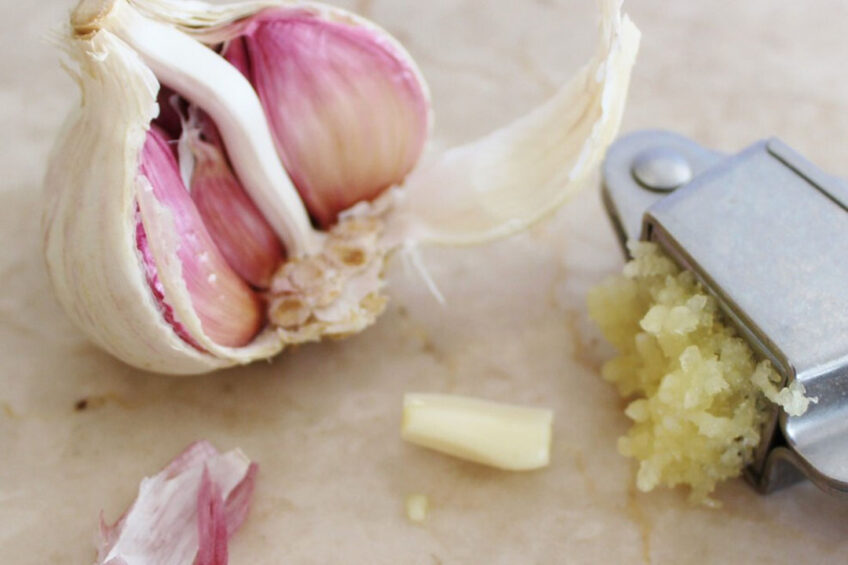A study determines the response of layer chicks to garlic

Nutraceuticals of natural origin, such as garlic, have shown to enhance the immunity, health and performance of birds. Researchers thus recently set up a feeding trial with layer chicks to determine the effect of the dietary inclusion of allicin-rich extract.
During the 5-week trial, which took place at the experimental unit of CERSA (Centre d’Excellence Régional Sur Les Sciences Aviaires) in Togo, 600 21-day-old Bovans Brown layer chicks were allocated to 6 treatments with 5 replicates (20 chicks each). The experimental diet consisted of a commercial standard diet for starter (metabolisable energy = 9.42 MJ and crude protein = 18.1%). The treatments were:
· T0: Negative control (basal diet without antibiotics or allicin-rich extract/garlic powder)
· T1: Positive control (basal diet supplemented with antibiotics)
· T2: Garlic powder supplemented group (0.50 g/kg)
· T3: Allicin-rich extract supplemented group (extracted from fresh garlic cloves) at 0.10 mL/kg
· T4: Allicin-rich extract supplemented group (extracted from fresh garlic cloves) at 0.30 mL/kg
· T5: Allicin-rich extract supplemented group (extracted from fresh garlic cloves) at 0.50 mL/kg.
To prepare the garlic powder, peeled garlic was air-dried at 17˚C for 8 weeks. The dried cloves were milled to powdery particle sizes of 2mm. To prepare the garlic extract (allicin-rich extract), 10g of the peeled cloves were crushed into a garlic paste which was soaked in 100 ml of cold distilled water. The solution was filtered using a muslin cloth, and the filtrate was used within 24 hours.
In conclusion from the study
It was therefore concluded by this research team that allicin-rich extract supplementation improved the immunity response of chicks by inhibiting microbial infections and inflammation compared to the negative control. The supplementation of dietary allicin-rich extract to the diets of layer chicks did not have an adverse effect on growth performance. However, at levels as high as 0.50 ml/kg, histopathological evaluation showed that layer chicks given allicin-rich extract had damaged livers.
The team, therefore, determined that allicin-rich extract could be used as a replacement for synthetic additives in the early stage of layer chickens to boost their immunity, but at 0.50 ml/kg inclusion can have toxic effects on the liver.
Allicin products in pigs and for meat, egg and yolks
Previous studies have shown the beneficial effect of supplementation of allicin products in piglets, which led to an increase in average daily weight gain as the level of dietary allicin increased. Furthermore, the feed:gain ratio decreased linearly and the incidence of diarrhea in the piglets decreased.
Garlic and its bioactive components have proven to improve meat and egg yolk quality by inhibiting the hepatic activities of essential enzymes that are involved in the syntheses of serum, meat and egg yolk cholesterol, and lipids. Regarding histopathology, garlic and its derivatives have been shown to influence some intestinal segments.
This study, ‘Response of layer chicks to the dietary inclusion of allicin-rich extract’, was published in Science Direct and can be found here.












